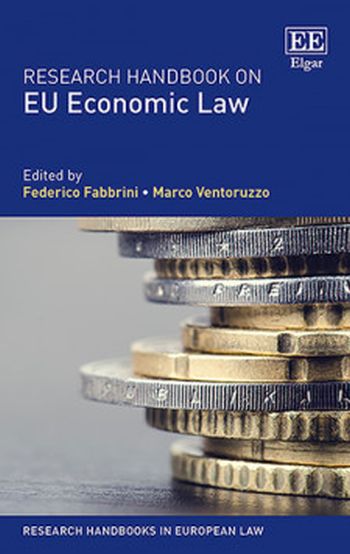
The Economic and Monetary Union (EMU) constitutes a key pillar of the project of European integration, and the law serves as the infrastructure of the European Union (EU)’s system of economic governance.
This comprehensive Handbook analyses and explains this complex architecture from a legal point of view and looks ahead to the challenges it faces and how these can be resolved.
Bringing together contributions from leading academics from across Europe and top lawyers from several EU institutions, this Handbook is the first to cover all aspects of the Eurozone’s legal ecosystem, including the fiscal, monetary, banking, and capital markets unions.
In doing so, it offers an up-to-date and in depth assessment of the norms and procedures that underpin EMU, exploring the latest developments, highlighting the strengths and weaknesses of the existing framework, and making suggestions for necessary reform through policy and law.
Scholars and advanced students with an interest in EU economic law will find this Handbook to be an indispensable guide. It will also prove valuable to policy-makers and legal advisors working in EU institutions, as well as practitioners in the field and officials in both EU and national administrations.